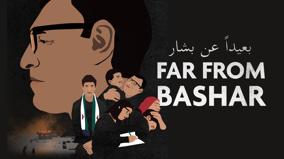New release
Coming
None
Raymond Klibansky - De la philosophie à la vie
2002
50 min
Leaving soon
Ce long métrage documentaire raconte le parcours exceptionnel du philosophe Raymond Klibansky. Témoin privilégié de la mémoire, acteur de son temps, ce philosophe juif allemand traverse un siècle de turbulences, de guerres et de haine. Dans sa jeunesse, il fréquente Karl Jaspers, Erwin Panofsky, Marianne Weber, Ernst Cassirer et Albert Einstein. Très tôt, on le considère comme un savant et son oeuvre intellectuelle est internationalement reconnue. Puis survient l'imposture nazie. Il la dénonce... mieux, il la combat. Au coeur de sa vie, il occupe un poste important au sein des Services secrets britanniques durant la Seconde Guerre mondiale. Depuis, il …

Details
Ce long métrage documentaire raconte le parcours exceptionnel du philosophe Raymond Klibansky. Témoin privilégié de la mémoire, acteur de son temps, ce philosophe juif allemand traverse un siècle de turbulences, de guerres et de haine. Dans sa jeunesse, il fréquente Karl Jaspers, Erwin Panofsky, Marianne Weber, Ernst Cassirer et Albert Einstein. Très tôt, on le considère comme un savant et son oeuvre intellectuelle est internationalement reconnue. Puis survient l'imposture nazie. Il la dénonce... mieux, il la combat. Au coeur de sa vie, il occupe un poste important au sein des Services secrets britanniques durant la Seconde Guerre mondiale. Depuis, il se consacre à promouvoir la tolérance et sera de toutes les luttes pour la liberté.
-
participationRaymond KlibanskyEthel GroffierSonja Sutton-SteinigerGeorges LerouxRainer Maria LepsiusNicholas MannJana PatockovaBenoît Lacroix
-
directionAnne-Marie Tougas
-
NoneAnne-Marie TougasPaul PerrierMarcel BeaulieuGeoffrey MitchellMarie-Christine GuitéLise LévesqueDany DelpyJosée TrudelJoanne CarrièreYves Bisaillon
-
researchAnne-Marie Tougas
-
pictureMarc GadouryJames Gray
-
editingFrance Pilon
-
soundAndré BoisvertOlivier Léger
-
sound editingClaude Langlois
-
direction assistantNicole Giguère
-
production directionDoris Lapierre
-
camera assistantAgnès FalquetAngela FreibergAlie GrayGilles Laliberté
-
still photographyAlain Tremblay
-
supplementary soundClaude Hamel
-
sound effects creationStéphane Cadotte
-
film researchFrançoise de La CressonnièreAnne-Marie Tougas
-
narration voiceMarie-France Lambert
-
musicNicolas Letarte
-
music - interpretationQuatuor Morency
-
musicianFrancine Lupien-BangDenise LupienPascale BeaudryChristopher Best
-
online editingSylvain Desbiens
-
titlesGaspard Gaudreau
-
2D computer graphicsGaspard Gaudreau
-
translationClaude Dionne
-
subtitlingClaude Dionne
-
sound mixerJean Paul VialardShelley Craig
-
production directorDenise DesLauriersColette Brodeur
-
technical coordinationJean-François LapriseRichard Cliche
-
producer's assistantJohanne BergeronChristiane Germain
Education
Ages 15 to 17
School subjects
Raymond Klibansky (1905–2005) left behind a humanist philosophy imbued with peace, freedom and tolerance. A German Jew who fought against tyranny, he had the courage to act in the face of adversity. He was fond of saying that any effort, even small, can improve society. The teacher can organize a debate among students on the subject of tolerance: talk about what it takes to understand others, and the right to live life in one’s own way.

















